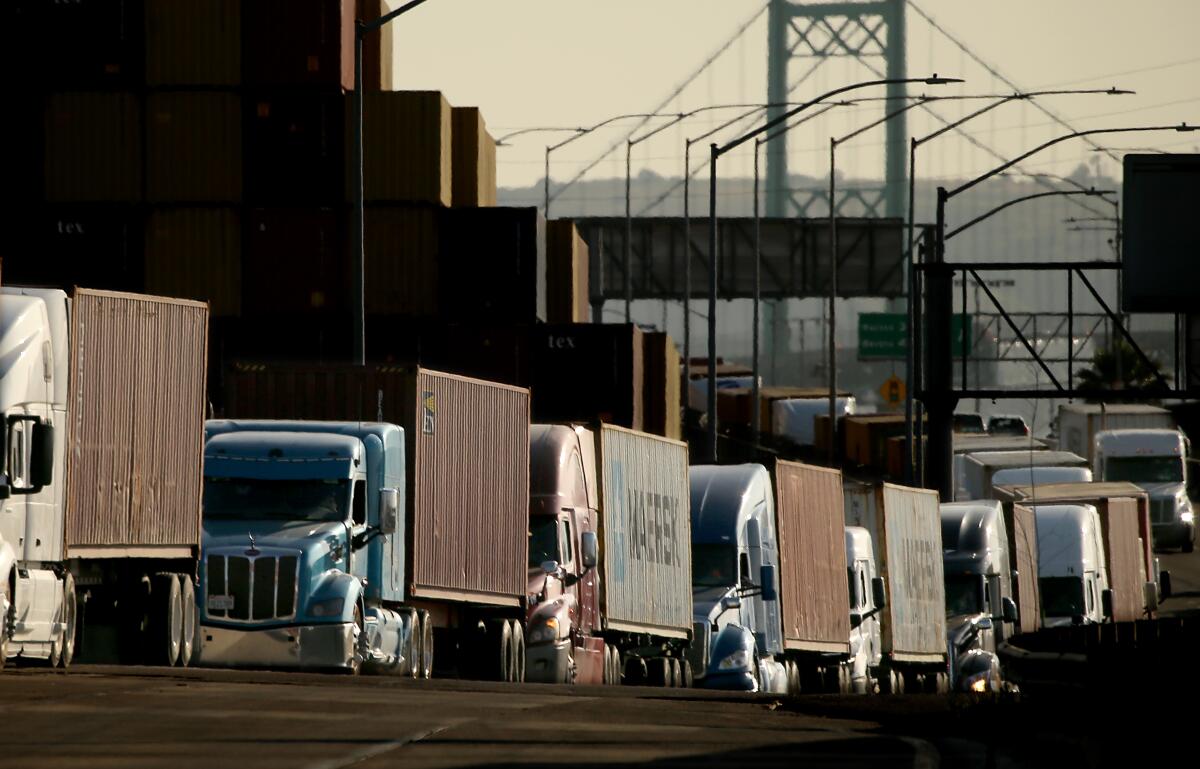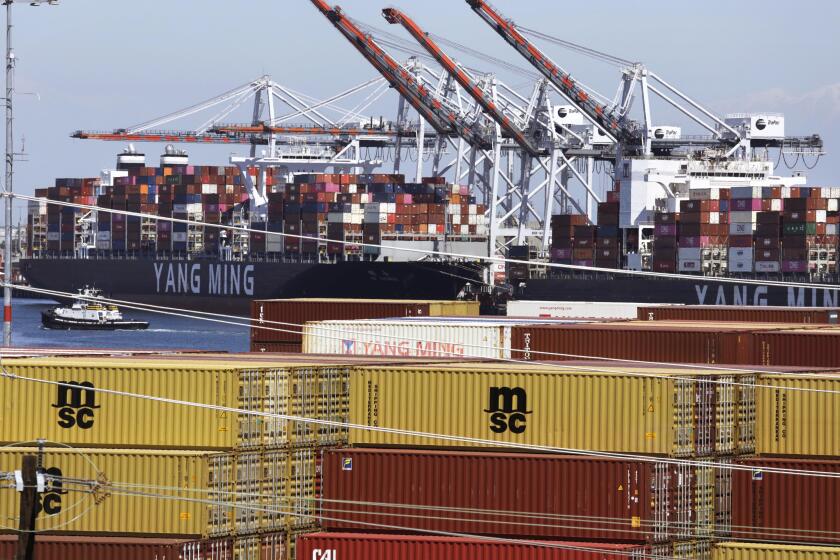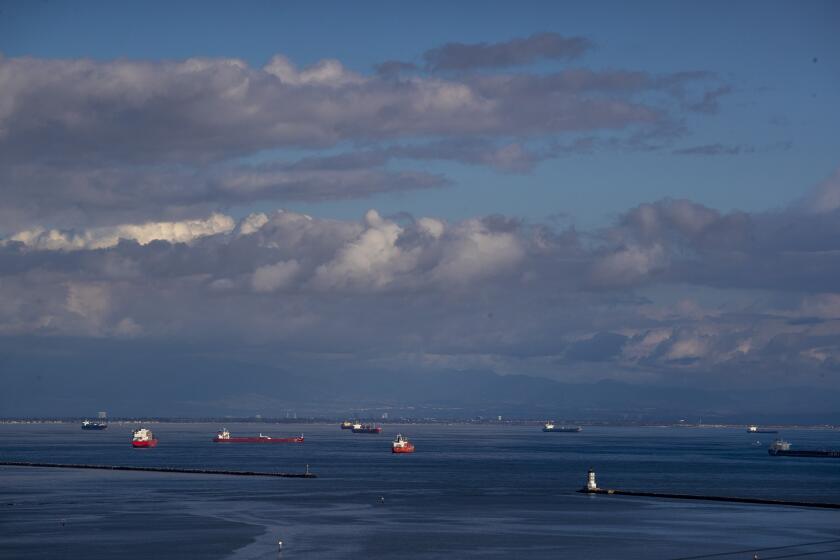L.A., Long Beach ports prepare to manage ship traffic as labor disrupts cargo

- Share via
Most container ships through the biggest import gateway in the U.S. face delays as labor-related disruptions widen on the West Coast and threaten another cargo logjam.
“Basically every container vessel is having their schedule pushed back by about a day or two,” Richard Palmer of the Marine Exchange of Southern California said in an emailed operations update. He said the main reason he’s seen is a lack of “lashers,” or longshore workers who secure containers aboard ships.
Palmer said that agents for 10 of the vessels attributed the delays to a shortage of workers, and that some agencies didn’t want to comment on the labor situation or didn’t specify a reason for the delay.
U.S. West Coast ports are enduring the longest labor strife since 2015 as talks between port employers and dockworkers approach a full year without a contract. Ships thrown off schedule can have ripple effects at other ports along their routes.
Labor shortages that started last week caused some terminals on the West Coast to close. Since then there have been intermittent disruptions at the ports of Los Angeles and Long Beach.
Southern California dockworkers disrupted the Los Angeles and Long Beach ports Friday after contract talks deteriorated in recent days.
The previous labor contract covering 29 ports from California to Washington state expired July 1. The International Longshore and Warehouse Union, representing 22,000 dockworkers, and the Pacific Maritime Assn., which represents ocean carriers and terminal operators, have been negotiating since May 2022.
The ILWU declined to comment on the delays.
Eight container ships were backed up and as many as 31 scheduled to arrive within the next week were delayed a day or two, according to officials who monitor maritime traffic around the ports of Los Angeles and Long Beach.
The snarls evoke a crisis that began in October 2020 with a backup of five vessels. Container ships laden with imported goods from Asia destined for consumers stuck at home overwhelmed the capacity of the ports, as well as the inland supply chain.
That queue reached 40 vessels by the following February, and dipped to nine in June 2021 before peaking at 109 in January 2022. The backup was finally cleared in November 2022 as trade volumes on the transpacific ocean lane plummeted and has remained clear since then.
A dockworker shortage at the ports of Los Angeles and Long Beach ended Friday night after halting cargo traffic at the complex.
Managing Congestion
Even if the congestion continues to worsen, it’s unlikely to cause the same gridlock and air pollution seen during the worst of the pandemic because a protocol remains in place, said Kip Louttit, executive director of the Marine Exchange of Southern California.
“We anticipate that container ships will not cram into our waters and will follow the new queuing system for labor protocols once again as they did before,” he said in an email Wednesday night.
Because the queuing system activated during the pandemic remains in place, ships that don’t have a berthing time within three days of their arrival will wait offshore in a safety and air quality area, Louttit said.
“We dealt with 55 ships anchored plus 62 loitering in our waters once before and can do it again,” he said.
The White House, which has authority to prevent an economy-crippling port strike, said this week that President Biden respects the collective bargaining process and that the administration wants both sides to stay at the negotiating table until a deal is reached.
Retailers and manufacturers have shifted cargo away from the L.A. and Long Beach ports, threatening local jobs. The ports vow to bring that trade back, but it won’t be easy.
More to Read
Inside the business of entertainment
The Wide Shot brings you news, analysis and insights on everything from streaming wars to production — and what it all means for the future.
You may occasionally receive promotional content from the Los Angeles Times.













